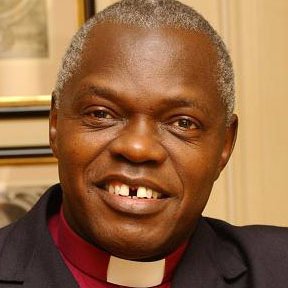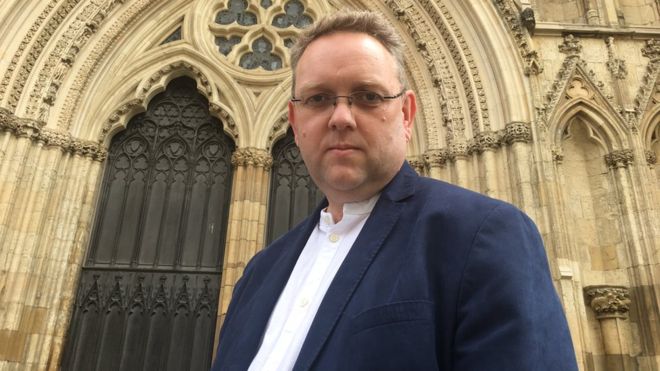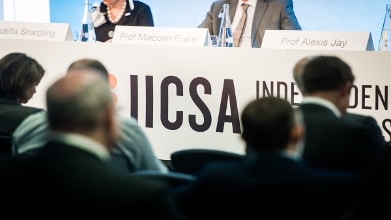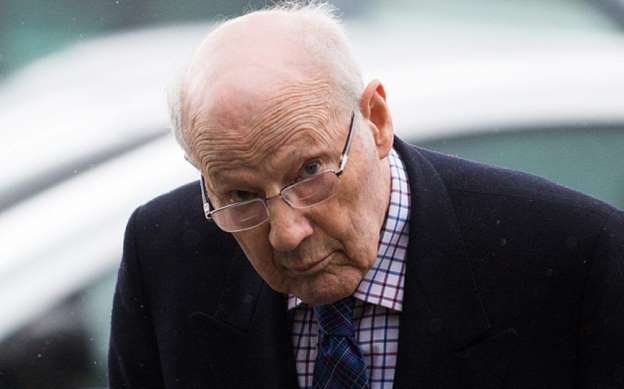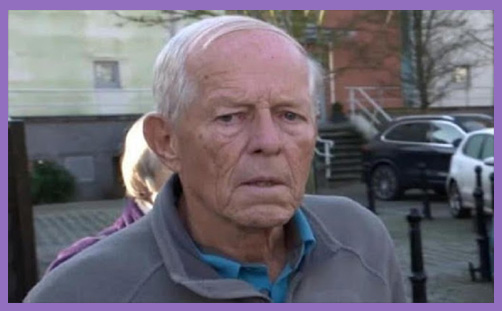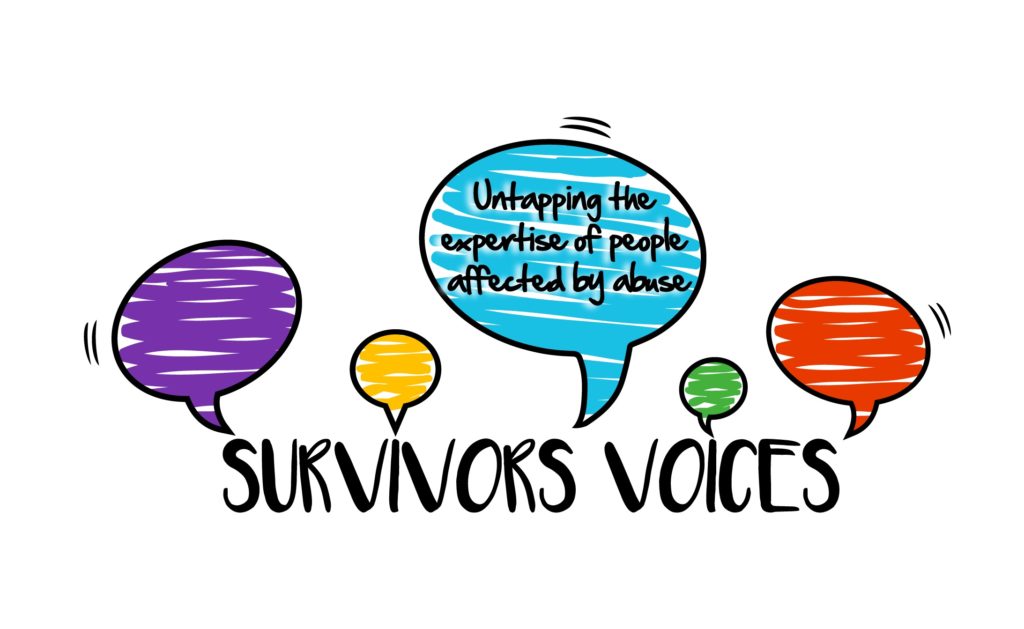
It’s been encouraging to hear many witnesses at the ICSA Anglican Hearing call for safeguarding decision-making to be removed from church hierarchy, especially bishops. The main reason given for this was the lack of professional training and experience to make such decisions. This point was perfectly illustrated on Day 3 of the hearing by the Bishop of Chester. He remained unable to accept that someone with 8,000 child pornography images on his computer, 800 of the worst kind, convicted of 17 offences, was never again going to be suitable to have a clerical role. Challenged about his decision, it was painful to see him squirm, either unable to see the errors in his judgement or to take responsibility for them. If I wasn’t more concerned about the children who were abused, tortured and exploited to make those images, I could almost feel sorry for him. I think that denial came from a triggered shame mechanism. He needs to read Brene Brown.
Survivors know all about shame, although ours comes not from our own errors, but from the struggle to make sense of trusted figures treating us so horribly. Parents/vicars/youth workers are always right and good, so it must be me that is bad. I can tell him all about the shame of internalised worthlessness, having spent many nights awake wondering if one of these images on someone’s computer is of my younger self. On second thoughts, I don’t feel sorry for him at all.
A second reason witnesses gave for removing decisions from Bishops was the conflict of interest in their role. I was glad to see this recognised, as it is something I have been banging on about for some time. Bishops are heavily invested in the institution, so the instinct to defend it is strong and of course it is their role to do their best for their diocese. They cannot just be focused on the best interests of the survivor. They also have pastoral responsibility and oversight of their clergy, which places survivors at best third on their list of priorities. That pastoral oversight – which is needed by the clergy and congregation involved in any allegation of abuse, as well as the person being abused – cannot be exercised freely and wholeheartedly if you are also the person being judge and employer.
There is a safeguarding decision that needs to be separated from internal responsibilities and taken by safeguarding experts. There is an HR decision that equally needs to be taken by someone with relevant HR expertise. Is this an issue of competence or character? Is this person still fit to practice? Then there are pastoral needs, of the victim, the congregation, the colleagues and family of the abuser, both during and after the investigation. This is where the pastoral and leadership skills of the bishop should be free to shine, strategically in terms of ensuring there is support for survivors and parishioners, practically in terms of supporting those in ministry and their families.
Even here there is a conflict of interest, one that I believe is shared by Diocesan Safeguarding Advisers. When you have been abused by someone in an institution such as the church, you are understandably wary of any authority figure in that institution. You are aware that, as already mentioned, the authority figures have an agenda based on their institutional responsibilities. The DSA is not just there for you as the victim. They give advice to the Bishop about how the church should respond. They are, usually, on the pay roll of the Diocese. They are part of the investigation and make best interest decisions
I have worked with looked after young people for many years and it is similar to the relationship they have with their social workers. However sympathetic social workers may be, their role includes decision-making based on the law, the LA budget and what they consider is in your best interests. This may not be what you want to happen. So you don’t always see them as your trusted friend and ally through the care maze.
In the early days of Survivors Voices, our survivor-led support, education and advocacy organisation, I led a couple of workshops for Safeguarding Advisers from church and voluntary organisations to highlight this very issue. They unearthed the tension between supporting survivors and being concerned about the rest of the institution. These conversations were part of the path to the authorised listener role.
Sadly, that has not been enough. Survivors need advocates who can advise them of their rights and guide them through the complicated and painful process of reporting, often simultaneously within church and state procedures. We need help to access trauma-informed therapy and recovery support, not just for a few hours or weeks but often years. We need bishops, clergy and lay workers who are safeguarding savvy, survivor-sensitive and trauma-informed. who listen, listen, listen and work with survivors and families to create safer spaces and good practice together. We need a culture and theology that has the vulnerable child in the centre, not just in a kitsch nativity scene but in the coreopsis our being and practice. We need worship and theology that is sensitive to triggers and the impact of spiritual abuse, that doesn’t re-abuse with shame, forced forgiveness, silence, inappropriate talk of reconciliation, stigmatising mental distress, indifference, resistance to taking responsibility and to change.
If you have been abused by your biological father and by your male priest, it is hard to see the communion offered to you in the hands of another male father figure, as the restorative succour of Christ, not another penetration by your abuser, a bribe to stay silent, a tainted gift. We need new survivor-informed and survivor-led worship and liturgies, safe spaces that explore a gentler theology, bring compassion, justice and shalom to the heart of our relationship with God.
If the church really cared about survivors, these are the kinds of support it would be providing. If the church really cared about survivors, we would be talking about justice and survivor theology and preventing spiritual abuse, about healing retreats and trauma-informed ministry and therapy services and restitution and reconciliation (as a broken church, NOT survivor-abuser), not policies and procedures and lawyers and insurers. If the church really cared about survivors there would be outpourings of sorrow and apology and compassion, from sharing the agony of abuse like Christ hanging with us on the cross, the place of love and anger and accompanying.
I believe there are many Christians, like me, that do really care and are passionate and committed to change things. As more survivors speak out, the path of change is clear. So why do we survivors still cry out, how long? The enquiry talked a lot about deference, but I think it needed to focus on resistance. Why do the leadership resist and why do the rest of us not rise up in revolt? Abuse is not about a few hundred thousand survivors, who they secretly wish would shut up and go away, a distraction from the church’s mission. Abuse is about our fundamental relationship with each other, about war and poverty and gender-based violence, climate change and pollution, our abuse of the earth and all living creatures. Until we all stop resisting our collective responsibility for ending global abuse, no safeguarding project or policy change will be enough. This is the real mission of the church.
Jane Chevous, Co-founder of Survivors Voices, www.survivorsvoices.org

